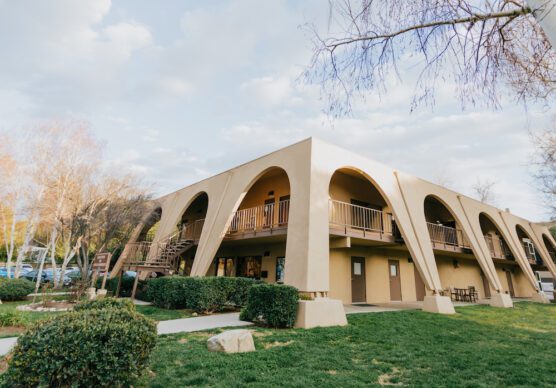By Josephine Lee
Two students from The Master’s University won a research award at one of the largest undergraduate biology conferences in the country.
Shaveen De Mel and Thai Perez presented a poster with their original findings in microbiology at the 46th West Coast Biological Sciences Undergraduate Research Conference (WCBSURC) during the spring semester. With their win, De Mel and Perez distinguished themselves among over 500 participants, many representing top schools including USC, UCLA, New York University and University of Georgia.
At WCBSURC, students have the opportunity to bring their data before the public and their peers, and potentially take home an award. These are given in various disciplines to the best posters and presentations. TMU students have won recognition three times since 2016 for research in the fields of biochemistry and molecular biology.
De Mel and Perez’s particular research project explored the biosynthesis of silver nanoparticles with plant extracts, a combination which enhances silver’s natural antimicrobial effects. The research has great applications in medicine and other industries.
The partnership between the two students was a strategic meld of their strengths; De Mel was well-versed in nanoparticle research, while Perez had already spent two years studying the antimicrobial and antifungal properties of several plants.
De Mel and Perez worked with Dr. Joe Francis and Dr. Ross Anderson, both longtime TMU science faculty who retired last spring after helping to develop a culture of student research in their department.
Research opportunities are critical for students hoping to pursue graduate or medical school and a research award becomes an attractive extra notch on their belt when applying to future employers and schools.
But beginning a research project is no simple assignment.
“The essence of research is coming out with new knowledge, new openings, and new opportunities,” De Mel said. “It calls for extra effort and total devotion.”
Dr. Anderson reiterated that for those seeking to contribute to the scientific community, there are no shortcuts.
“Research is not like a typical class,” Anderson said. “It’s whatever hours it takes. Sometimes that means working into the night. You may need to come in early the next morning, or on the weekend.” Students must be prepared to troubleshoot errors and repeat experiments — as many times as necessary.
Anderson affirmed that De Mel and Perez displayed exactly that sort of perseverance, despite the project’s challenges. Their commitment has reaped its rewards, landing TMU’s first WCBSURC win in the field of microbiology.
“As much as we failed, we tried harder and harder, and we experienced personally that failures are not the opposite of success; rather, they’re a part of success,” De Mel said. “We are glad that we were able to glorify the Lord, honor The Master’s University, and venerate the eminent duo, Dr. Francis and Dr. Anderson.”
Thai stressed the value of her experience.
“This was all by the grace of God,” Thai said. “It was his guidance along with the professors that helped us get through it. I am grateful that I was able to experience this and get a win. Even attending the conference is a blessing.”
In TMU’s School of Science, Medicine, Technology, and Health, students are well-prepared to represent Christ in the sciences, with opportunities for research under highly experienced faculty. Learn more about the school’s programs here.
Josephine Lee is a senior double-majoring in communication and interdisciplinary studies.
Like this:
Like Loading...
Related





 Tweet This
Tweet This Facebook
Facebook Digg This
Digg This Bookmark
Bookmark Stumble
Stumble RSS
RSS































REAL NAMES ONLY: All posters must use their real individual or business name. This applies equally to Twitter account holders who use a nickname.
0 Comments
You can be the first one to leave a comment.